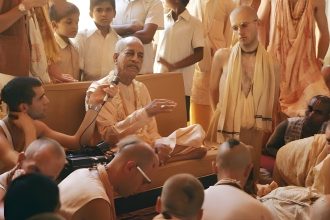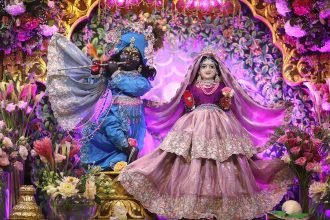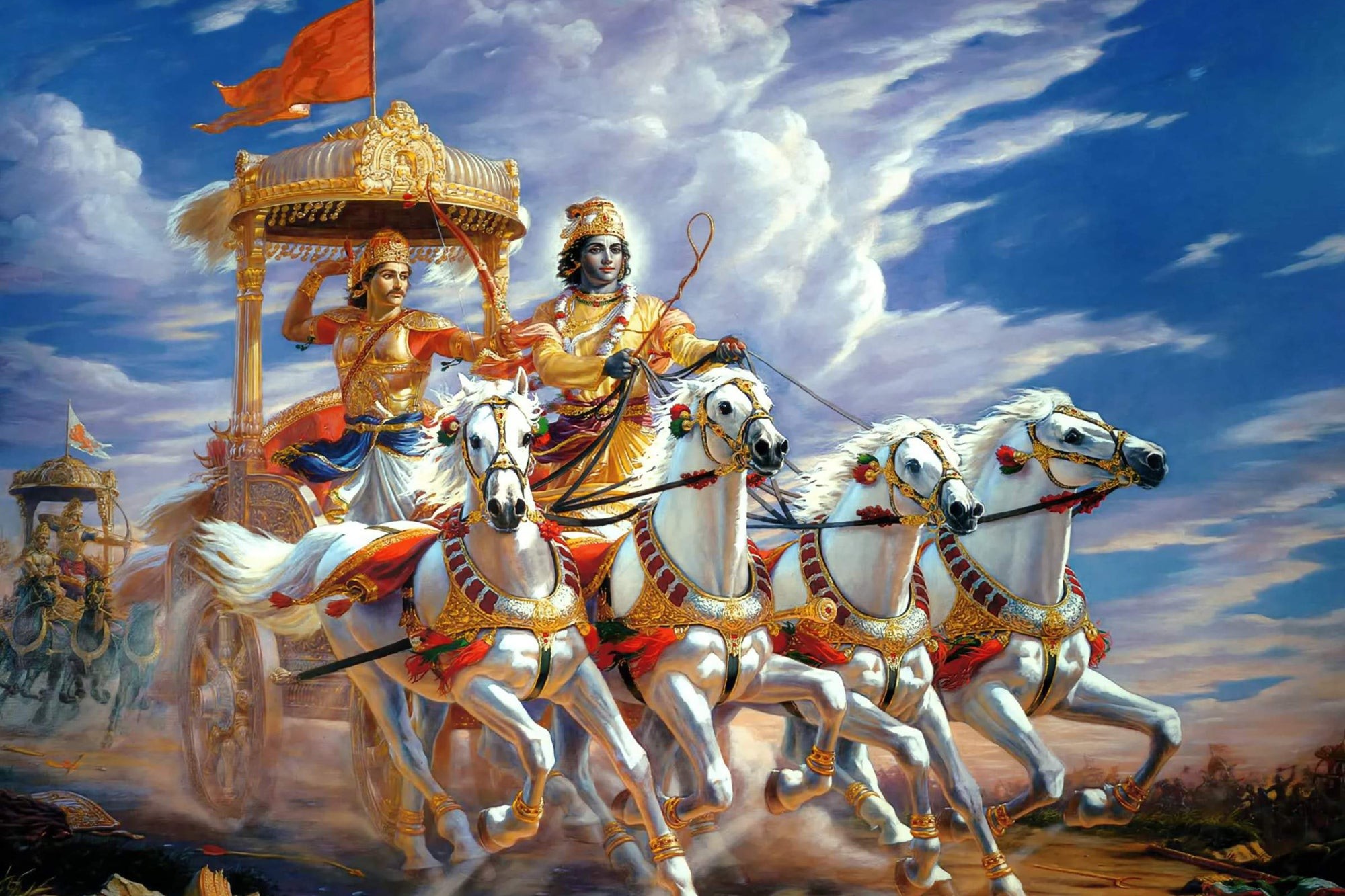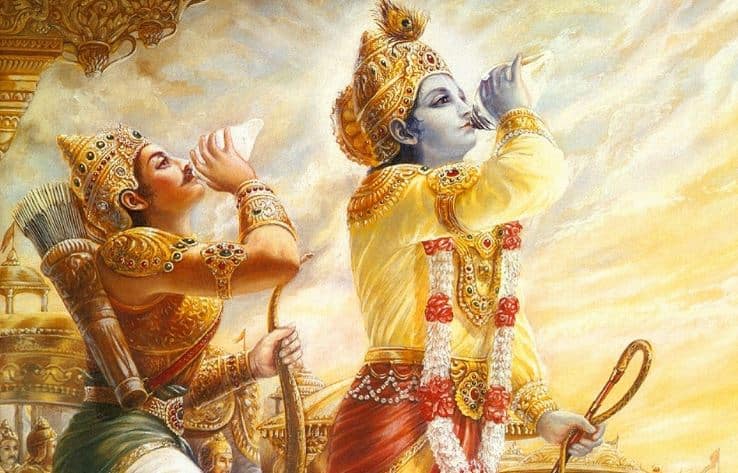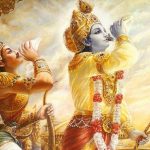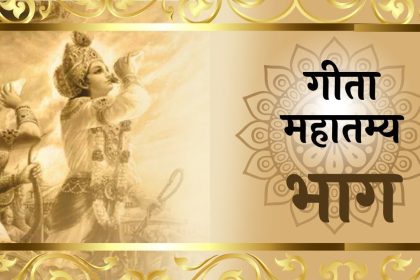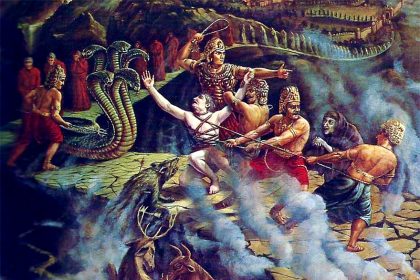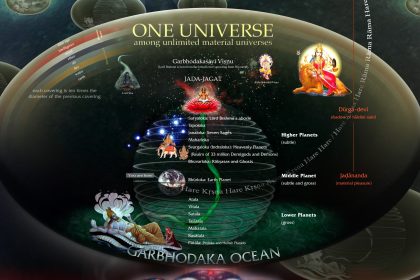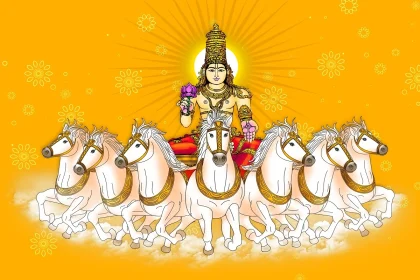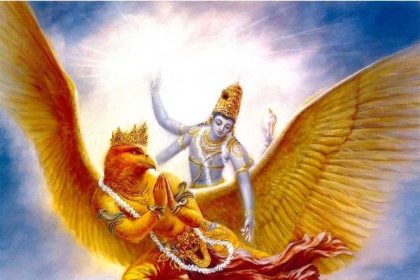TEXT 21
bāhya-sparśeṣv asaktātmā
vindaty ātmani yat sukham
sa brahma-yoga-yuktātmā
sukham akṣayam aśnute
SYNONYMS
bāhya-sparśeṣu—in external sense pleasure; asakta-ātmā—one who is not attached; vindati—enjoys; ātmani—in the self; yat—that which; sukham—happiness; saḥ—he; brahma-yoga—by concentration in Brahman; yukta-ātmā—self-connected; sukham—happiness; akṣayam—unlimited; aśnute—enjoys.
TRANSLATION
Such a liberated person is not attracted to material sense pleasure but is always in trance, enjoying the pleasure within. In this way the self-realized person enjoys unlimited happiness, for he concentrates on the Supreme.
PURPORT
Śrī Yāmunācārya, a great devotee in Kṛṣṇa consciousness, said:
yad-avadhi mama cetaḥ kṛṣṇa-pādāravinde
nava-nava-rasa-dhāmany udyataṁ rantum āsīt
tad-avadhi bata nārī-saṅgame smaryamāne
bhavati mukha-vikāraḥ suṣṭhu niṣṭhīvanaṁ ca
“Since I have been engaged in the transcendental loving service of Kṛṣṇa, realizing ever-new pleasure in Him, whenever I think of sex pleasure I spit at the thought, and my lips curl with distaste.” A person in brahma-yoga, or Kṛṣṇa consciousness, is so absorbed in the loving service of the Lord that he loses his taste for material sense pleasure altogether. The highest pleasure in terms of matter is sex pleasure. The whole world is moving under its spell, and a materialist cannot work at all without this motivation. But a person engaged in Kṛṣṇa consciousness can work with greater vigor without sex pleasure, which he avoids. That is the test in spiritual realization. Spiritual realization and sex pleasure go ill together. A Kṛṣṇa conscious person is not attracted to any kind of sense pleasure, due to his being a liberated soul.
TEXT 22
ye hi saṁsparśa-jā bhogā
duḥkha-yonaya eva te
ādy-antavantaḥ kaunteya
na teṣu ramate budhaḥ
SYNONYMS
ye—those; hi—certainly; saṁsparśa-jāḥ—by contact with the material senses; bhogāḥ—enjoyments; duḥkha—distress; yonayaḥ—sources of; eva—certainly; te—they are; ādi—beginning; anta—end; vantaḥ—subject to; kaunteya—O son of Kuntī; na—never; teṣu—in those; ramate—takes delight; budhaḥ—the intelligent person.
TRANSLATION
An intelligent person does not take part in the sources of misery, which are due to contact with the material senses. O son of Kuntī, such pleasures have a beginning and an end, and so the wise man does not delight in them.
PURPORT
Material sense pleasures are due to the contact of the material senses, which are all temporary because the body itself is temporary. A liberated soul is not interested in anything which is temporary. Knowing well the joys of transcendental pleasures, how can a liberated soul agree to enjoy false pleasure? In the Padma Purāṇa it is said:
ramante yogino ‘nante
satyānande cid-ātmani
iti rāma-padenāsau
paraṁ brahmābhidhīyate
[Cc. Madhya 9.29]
“The mystics derive unlimited transcendental pleasures from the Absolute Truth, and therefore the Supreme Absolute Truth, the Personality of Godhead, is also known as Rāma.”
In the Śrīmad-Bhāgavatam also (5.5.1) it is said:
nāyaṁ deho deha-bhājāṁ nṛ-loke
kaṣṭān kāmān arhate viḍ-bhujāṁ ye
tapo divyaṁ putrakā yena sattvaṁ
śuddhyed yasmād brahma-saukhyaṁ tv anantam
“My dear sons, there is no reason to labor very hard for sense pleasure while in this human form of life; such pleasures are available to the stool-eaters [hogs]. Rather, you should undergo penances in this life by which your existence will be purified, and as a result you will be able to enjoy unlimited transcendental bliss.”
Therefore, those who are true yogīs or learned transcendentalists are not attracted by sense pleasures, which are the causes of continuous material existence. The more one is addicted to material pleasures, the more he is entrapped by material miseries.


